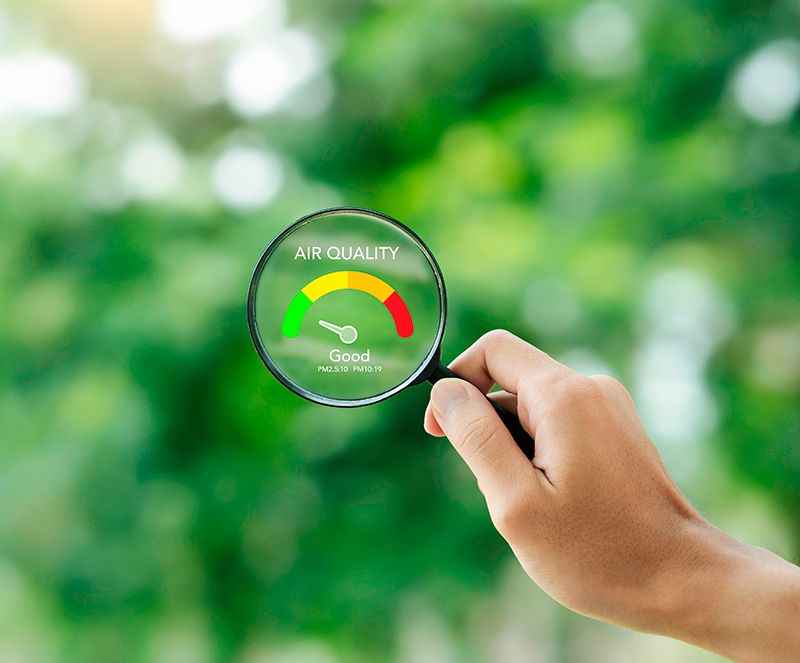Clean Air for All: IQAir Foundation
An estimated one-in-every-nine deaths worldwide is caused by air pollution. According to the World Health Organization, air pollution is responsible for an estimated seven million premature deaths worldwide every year.

Exposure to PM2.5 air pollution leads to numerous health conditions, including but not limited to asthma, cancer, stroke, and lung disease. Additionally, exposure to elevated levels of fine particles can impair cognitive development in children, lead to mental health issues, and complicate existing illnesses including diabetes.
Hammes is on a mission to provide air quality data to underrepresented areas and ensure that people have access to clean air. This is why she established the IQAir Foundation, a nonprofit focused on providing community air quality monitoring, and clean air for kids, to improve the air quality in schools located in impacted communities.
In recent years, hydrogen has emerged as a promising alternative to traditional fossil fuels, with the potential to revolutionize the energy landscape and mitigate climate change. However, evidence suggests that the environmental benefits of hydrogen are contingent on how it is produced.
IQAir CEO, Glory Dolphin Hammes sheds light on some of the dangers of hydrogen production processes that have led to increased carbon emissions and other pollutants, counteracting the very goal of transitioning to cleaner energy sources.
Q: What can the next generation expect in terms of clean air?
A: Air pollution and climate change have one culprit, fossil fuels. We can hope to see a trend towards technology and policies aimed at decarbonization and improving air quality. Some of those developments include green infrastructure, stricter emission stands, public awareness and advocacy, clean energy technologies, and EVs.
Q: What innovations are we seeing to tackle air pollution? “
A: Innovations are expanding and encompassing technology and community-based air quality monitoring with low-cost sensors. Only what is measured can be improved.
Q: With the rising risk of wildfires in California, can we expect healthier air in the coming years?
A: While the increasing risk of wildfires presents a significant challenge to air quality in California, the combination of scientific understanding, technological advancements, policy measures, and community engagement offers a pathway to mitigate these impacts.
Q: Can technology and science combat our current air situation? Have we been able to already combat air pollution?
A: Technology and science have been pivotal in combating air pollution and continue to offer promising solutions in improve air quality. However, their success often depends on public support, policy, economic factors, and global cooperation. Technology and science have made significant strides to creating tools (low-cost sensors, delivering timely information with web-based communication) to combat air pollution, but ongoing research, innovation, and international collaboration are essential to address the evolving challenges and ensure cleaner air for future generations.


